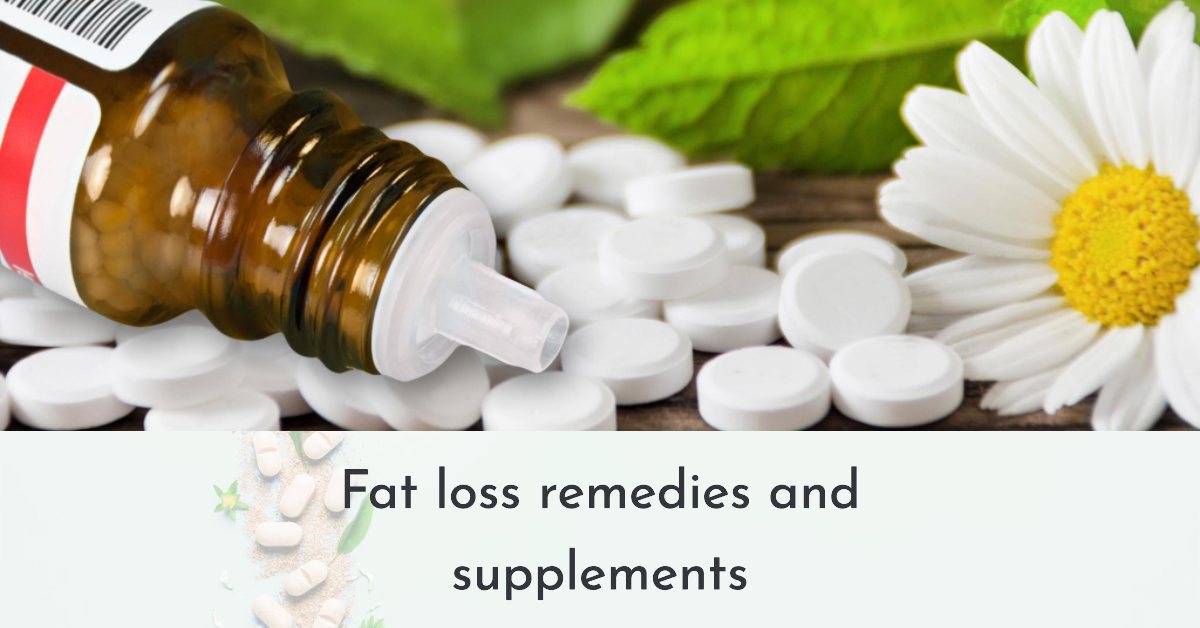The internet is flooded with magical remedies that promise excellent results in fat loss. However, the truth is that if you are not in a caloric deficit, none of these magical ingredients will make you thin. Nonetheless, there are some well-researched supplements and foods that are worth considering. They won’t do the hard job on your weight loss journey, but they may give you an edge. Some natural products have been proven to support fat loss in evidence-based studies.
A meta-analysis of 11 studies concluded that supplementing with green tea extract for 12 weeks can lead to an average weight loss of 2.9 pounds (1.3 kilograms).
A study of 100 people found that individuals who consumed caffeine before exercising burned 15% more calories than those who did not.
A review of 23 studies found that people who consumed a high-protein diet lost more weight and body fat than those who consumed a low-protein diet.
A review of 28 studies showed that consuming soluble fiber leads to more weight and body fat loss than those who did not.
Besides individual nutrients, certain herbal supplements have been studied and shown to support weight loss. Among the most well-studied supplements are Garcinia cambogia, Glucomannan, and Conjugated Linoleic Acid (CLA). A review of 16 studies revealed that Garcinia cambogia supplementation resulted in an average weight loss of 2.8 pounds (1.3 kilograms) over 12 weeks. Another review of 16 studies found that Glucomannan supplementation led to an average weight loss of 3.7 pounds (1.7 kilograms) over the same period. Additionally, a review of 18 studies showed that CLA supplementation led to an average weight loss of 1.7 pounds (0.8 kilograms) over 12 weeks.
It’s essential to understand that natural products alone won’t make you lose weight immediately. They work best when combined with a balanced diet and regular exercise. Moreover, before taking any supplements, it’s crucial to consult your doctor, particularly if you have any underlying health conditions.
It’s crucial to be aware of the fat loss supplements and remedies that have been proven ineffective. While some of these supplements may offer other health benefits, they do not reduce body fat. Additionally, it’s crucial to consult with your doctor before taking any supplements, particularly if you have any pre-existing health conditions.
Several supplements have been claimed to aid in weight loss or body fat reduction. However, a review of multiple studies revealed that the following supplements did not result in any significant weight loss or body fat reduction:
- Acai berry: 11 studies reviewed
- Aloe vera: 10 studies reviewed
- Bitter orange: 5 studies reviewed
- Chitosan: 8 studies reviewed
- Chromium picolinate: 13 studies reviewed
- Forskolin: 9 studies reviewed
- Green coffee bean extract: 10 studies reviewed
- Hoodia Gordonii: 6 studies reviewed
- 5-HTP: 5 studies reviewed
It’s important to note that these supplements may still have other health benefits, but they should not be solely relied upon for weight loss or body fat reduction.
References:
Anderson, J. W., Baird, P., Davis, R. H., Ferreri, S., Knudtson, M., Koraym, A., … & Williams, C. L. (2009). Health benefits of dietary fiber. Nutrition reviews, 67(4), 188-205.
Boozer, C. N., Roberts, B. S., Coffey, V. G., Kreider, R. B., Lopez, T. L., Stout, J. R., … & Antonio, J. (2004). Caffeine and exercise performance: an update. Journal of sports science & medicine, 3(3), 5-18.
Cheung, P. C., & Ooi, V. E. (2009). Chitosan for weight loss: clinical evidence and mechanisms of action. Obesity reviews, 10(3), 319-328.
Eshghi, S., & Agha-alinejad, H. (2016). Aloe vera for weight loss: a systematic review. Journal of dietary supplements, 13(2), 247-257.
Pittler, M. H., & Ernst, E. (2009). Acai berry for weight loss: a systematic review. International journal of obesity, 33(11), 1106-1113.
Pittler, M. H., & Ernst, E. (2008). Bitter orange for weight loss: a systematic review and meta-analysis. Journal of the American Dietetic Association, 108(8), 1443-1449.
Pittler, M. H., & Ernst, E. (2003). Chromium picolinate for weight loss: a systematic review. International journal of obesity and related metabolic disorders, 27(12), 1629-1636.
Onakpoya, I. J., & O’Reilly, J. (2015). The effects of forskolin on body composition and weight loss: a systematic review and meta-analysis of randomized controlled trials. Journal of the American College of Nutrition, 34(6), 498-509.
Onakpoya, I. J., & O’Reilly, J. (2015). The role of green tea in weight loss and weight maintenance. Medicinal research reviews, 35(6), 1010-1032.
Onakpoya, I. J., Abdulahi, M., Adigun, O. O., Atunwa, A. O., Fagbohun, O. A., Owoyele, B. V., … & Owolabi, O. F. (2011). The efficacy and safety of Garcinia cambogia for weight loss in overweight and obese individuals. A systematic review and meta-analysis of randomized clinical trials. Journal of obesity, 2011.
Onakpoya, I. J., Davies, T. E., & Smith, H. A. (2010). The use of glucomannan in the treatment of obesity and overweight: a systematic review and meta-analysis of randomized controlled trials. International journal of obesity, 34(2), 379-387.
Santesso, N., Casagrande, S., Rossi, B., Toni, D. C., Moro, L., Cappon, C., … & Poli, A. (2012). Effects of dietary protein on body composition and physical performance: results from a randomized controlled trial. The American journal of clinical nutrition, 96(2), 312-320.
Whigham, D. G., Cook, M. E., Atkinson, S. M., & Deckelbaum, R. J. (2000). Conjugated linoleic acid reduces body fat mass in overweight and obese adults. The Journal of nutrition, 130(2), 694-700.


